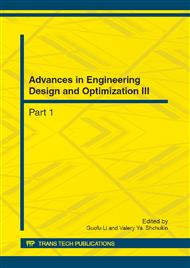p.758
p.763
p.767
p.773
p.781
p.785
p.789
p.794
p.798
Research of Constructing Product Project Economics Analysis Model of Dynamic and Static Financial Status
Abstract:
This paper adopts the methods of classified research and examples validation to study constructing product project economics analysis model of dynamic and static financial status. It is found that expanding dominant economic analysis to a wider range of overall resources analysis is benefit for operators to make more overall and long-term qualitative and quantitative decision. The result indicates that for small and short-term investment behavior, managers tend to use accurate and static project condition analysis model to evaluate operation condition; For long-term industry project, it is necessary for the company to construct a dynamic project management condition analysis model to help make decision; For long-term strategic interest, managers tend to increase investment and continuously reform product performance and innovate product function to strengthen the ability of winning resources when the company acquired more than expenses, but when the company acquired less than expenses, managers need to constantly adjust product project's profit structure, resist rival marketing and technology offensive, and seek breaking point of special local advantage area and market positioning.
Info:
Periodical:
Pages:
781-784
Citation:
Online since:
October 2012
Authors:
Price:
Сopyright:
© 2012 Trans Tech Publications Ltd. All Rights Reserved
Share:
Citation:


